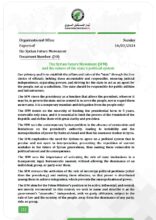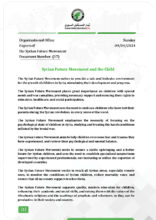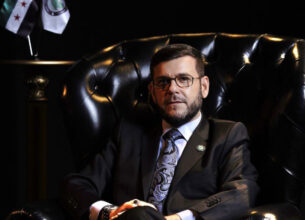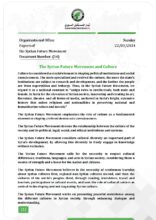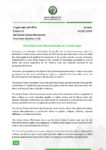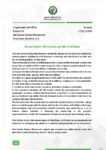The Syrian Future Movement (SFM) and the Preservation of the Five Necessities
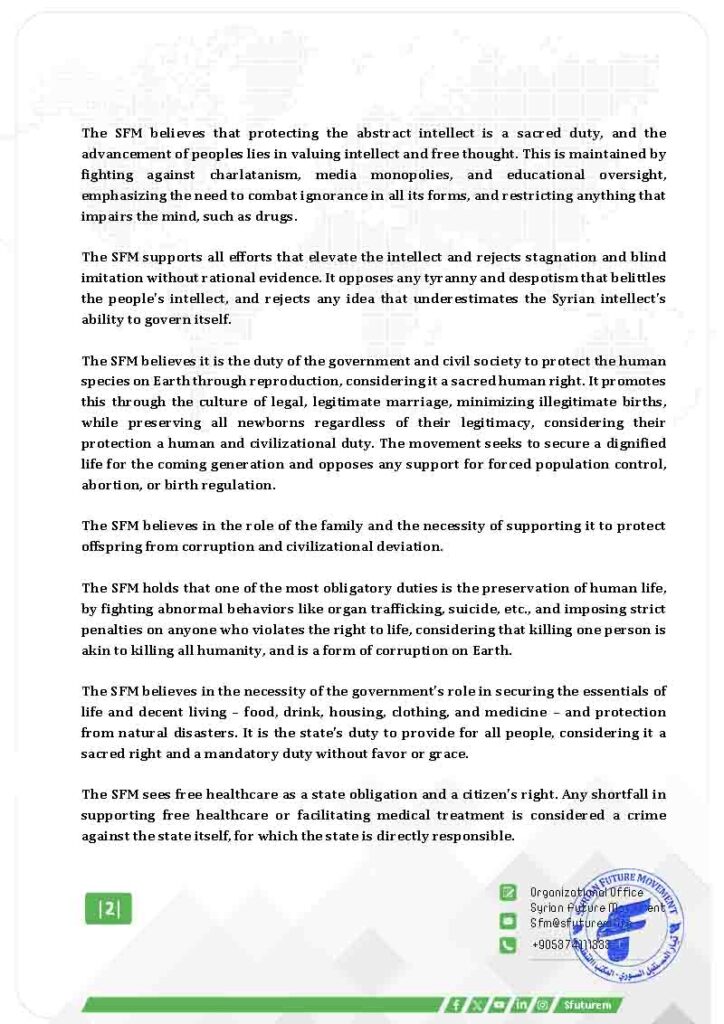
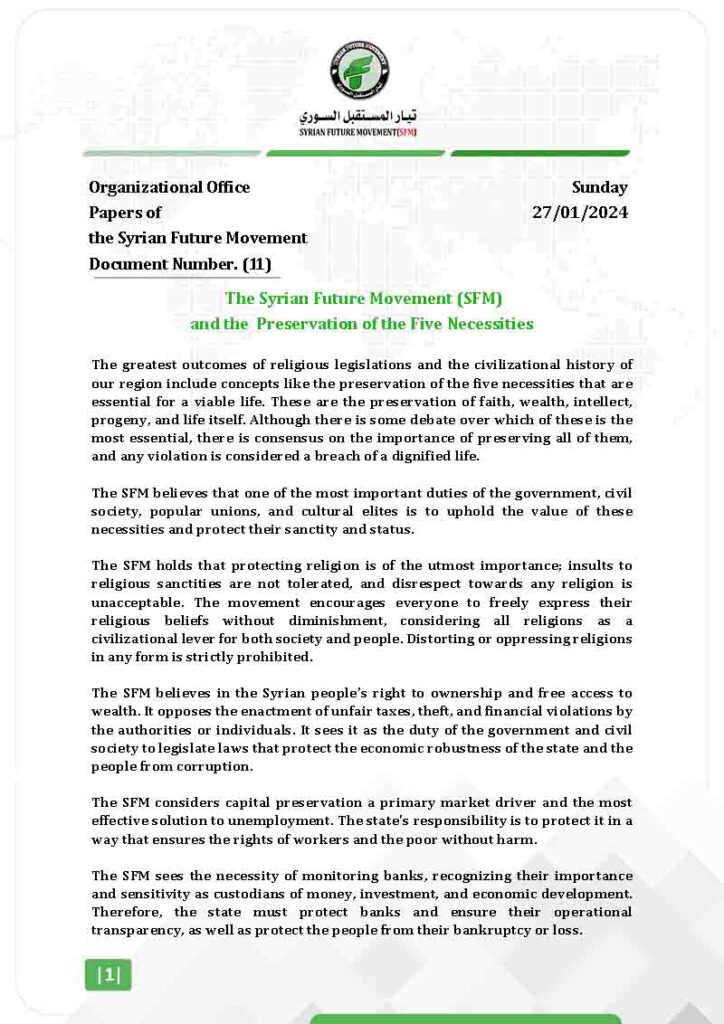
The greatest outcomes of religious legislations and the civilizational history of our region include concepts like the preservation of the five necessities that are essential for a viable life. These are the preservation of faith, wealth, intellect, progeny, and life itself. Although there is some debate over which of these is the most essential, there is consensus on the importance of preserving all of them, and any violation is considered a breach of a dignified life.
The SFM believes that one of the most important duties of the government, civil society, popular unions, and cultural elites is to uphold the value of these necessities and protect their sanctity and status.
The SFM holds that protecting religion is of the utmost importance; insults to religious sanctities are not tolerated, and disrespect towards any religion is unacceptable. The movement encourages everyone to freely express their religious beliefs without diminishment, considering all religions as a civilizational lever for both society and people. Distorting or oppressing religions in any form is strictly prohibited.
The SFM believes in the Syrian people’s right to ownership and free access to wealth. It opposes the enactment of unfair taxes, theft, and financial violations by the authorities or individuals. It sees it as the duty of the government and civil society to legislate laws that protect the economic robustness of the state and the people from corruption.
The SFM considers capital preservation a primary market driver and the most effective solution to unemployment. The state’s responsibility is to protect it in a way that ensures the rights of workers and the poor without harm.
The SFM sees the necessity of monitoring banks, recognizing their importance and sensitivity as custodians of money, investment, and economic development. Therefore, the state must protect banks and ensure their operational transparency, as well as protect the people from their bankruptcy or loss.
The SFM believes that protecting the abstract intellect is a sacred duty, and the advancement of peoples lies in valuing intellect and free thought. This is maintained by fighting against charlatanism, media monopolies, and educational oversight, emphasizing the need to combat ignorance in all its forms, and restricting anything that impairs the mind, such as drugs.
The SFM supports all efforts that elevate the intellect and rejects stagnation and blind imitation without rational evidence. It opposes any tyranny and despotism that belittles the people’s intellect, and rejects any idea that underestimates the Syrian intellect’s ability to govern itself.
The SFM believes it is the duty of the government and civil society to protect the human species on Earth through reproduction, considering it a sacred human right. It promotes this through the culture of legal, legitimate marriage, minimizing illegitimate births, while preserving all newborns regardless of their legitimacy, considering their protection a human and civilizational duty. The movement seeks to secure a dignified life for the coming generation and opposes any support for forced population control, abortion, or birth regulation.
The SFM believes in the role of the family and the necessity of supporting it to protect offspring from corruption and civilizational deviation.
The SFM holds that one of the most obligatory duties is the preservation of human life, by fighting abnormal behaviors like organ trafficking, suicide, etc., and imposing strict penalties on anyone who violates the right to life, considering that killing one person is akin to killing all humanity, and is a form of corruption on Earth.
The SFM believes in the necessity of the government’s role in securing the essentials of life and decent living – food, drink, housing, clothing, and medicine – and protection from natural disasters. It is the state’s duty to provide for all people, considering it a sacred right and a mandatory duty without favor or grace.
The SFM sees free healthcare as a state obligation and a citizen’s right. Any shortfall in supporting free healthcare or facilitating medical treatment is considered a crime against the state itself, for which the state is directly responsible.
